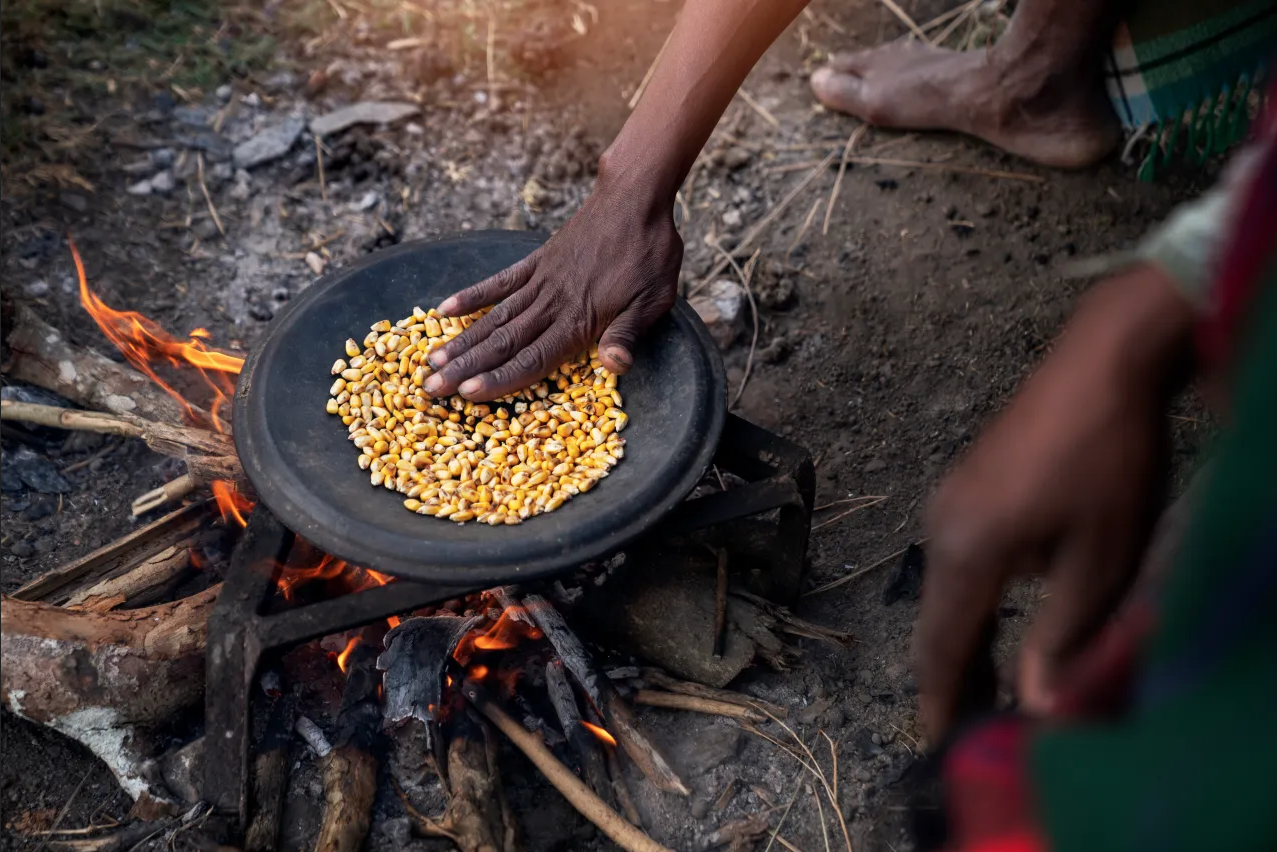More than 900 million people in Africa rely on unclean cooking solutions, which are often risky to come by and unsafe to use, says the International Energy Agency.
At the Summit on Clean Cooking in Africa, hosted on 14 May by the International Energy Agency (IEA) in Paris, delegates heard that nearly four in five Africans are still cooking their meals over open fires or on traditional stoves using wood, charcoal, animal dung and other polluting fuels.
Globally, one in three people is forced to rely on polluting cooking fuels like charcoal, wood, animal dung, charcoal and paraffin, said the IEA. This “dirty cooking” is a leading source of carbon emissions and kills an estimated four million people each year, as harmful smoke and fumes are inhaled.
Wonderbag founder Sarah Collins, who was at the summit, told Daily Maverick that several million people die each year from indoor air pollution-related diseases. However, a startling 82% of rapes in rural Africa occur when women and girls are collecting firewood, as indicated in a report from the Global Alliance for Clean Cookstoves.
In the 16 years since Collins launched Wonderbag, a heat-retaining, non-electric slow cooker, there has been little progress in the clean cooking space, she said.
The IEA started tracking energy access more than two decades ago and has advocated for clean cooking access ever since. Its executive director, Dr Fatih Birol, has voiced concern that only 1% of funding in this space has gone to Africa, saying that the lack of access to clean cooking is a critical health, gender, energy and climate issue affecting a billion people on the continent.
The expectation ahead of the summit was that development partners would make pledges towards the $4-billion needed to provide clean cooking access for 250 million African women by 2030.
Norwegian Prime Minister Jonas Gahr Støre said improving access to clean cooking is about improving health outcomes, reducing emissions and creating opportunities for economic growth. “Norway is a steadfast supporter of clean cooking and… we are committed to investing €50-million in this important cause.”
The African Development Bank Group has vowed to commit $12-billion over the next 10 years.
It’s easy to make such commitments, but how they translate into culturally relevant cookstoves in African homes is key, Collins said.
Now working independently in Gaza alongside World Central Kitchen, Collins started manufacturing extra-large Wonderbags in January for use in independent refugee camps and community kitchens.
She has raised funds through her foundation and received some desperately needed support from unexpected sources, she said, but it is operating on a shoestring budget.
“Because I have taken a strong stance from a humanitarian perspective to support people who needed it the most, fundraising is difficult. There’s such a lack of infrastructure. I’ve been supporting communities and have a team inside Gaza.”
Ener-G-Africa, which manufactures clean-burning, fuel-efficient stoves and cookware, launched a new multimillion-rand facility in Paarl this month.
The company’s CEO, André Moolman, said millions of women across Africa have no option but to cook in unsafe conditions using inefficient equipment.
“They spend hours collecting firewood for fuel and cooking on primitive, unhealthy and often dangerous wood-burning stoves.
“We are looking to change that by providing accessible, cost-effective and innovative cookware that saves women time, money and fuel. We hope to help women reclaim their time, negate safety issues related to firewood collection and improve health outcomes by minimising exposure to harmful smoke.” DM
Stay informed with The Namibian – your source for credible journalism. Get in-depth reporting and opinions for
only N$85 a month. Invest in journalism, invest in democracy –
Subscribe Now!







